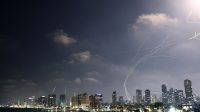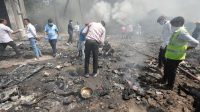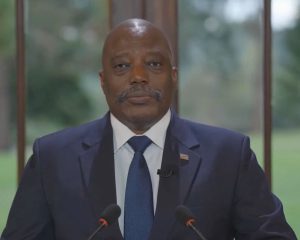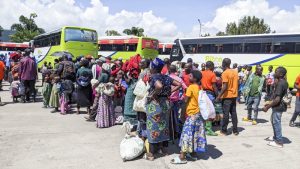AFC/M23 reveals FDLR, Wazalendo militias hid weapons in schools, homes during clashes
The AFC/M23 rebel alliance has accused the FDLR and Wazalendo militias of turning civilian neighbourhoods, including schools and homes, into active conflict zones by concealing weapons and fighters among the local population during recent battles in the eastern part of the Democratic Republic of Congo (DRC).
In a human rights report released on May 30, the rebel group revealed that the militias’ tactics endangered civilians and violated international humanitarian law, a reality it says was completely omitted from Amnesty International’s recent report that accuses AFC/M23 of widespread human rights abuses.
The rebel alliance denounced Amnesty’s findings as politically motivated and misleading, arguing that they distort the realities on the ground and fuel misinformation about the group’s role in eastern DRC.
Amnesty International’s report alleges that M23 forces were responsible for killing, torturing, and forcibly disappearing detainees, as well as subjecting prisoners to inhumane conditions in detention sites. M23 rejected the allegations, stating that its own report is based on field investigations, eyewitness accounts, and verifiable documentation.
According to the group, its operations in Goma and Bukavu aimed to neutralise infiltrators while minimising disruption to civilians. The report claims that rebel-led efforts led to reduced violence, disarmament of hostile groups, and the establishment of humanitarian corridors—positive developments AFC/M23 says are routinely ignored by international watchdogs.
The group also addressed claims surrounding the January 27 tragedy at Munzenze Prison, where 165 women reportedly died after a fire and mass escape. AFC/M23 maintains that it had not yet entered Goma at the time and accused Amnesty International of failing to verify the sequence of events before assigning blame.
“These incidents at Munzenze Prison happened before AFC/M23 got there,” Delion Kimbulungu, the Secretary of AFC/M23 clarified.
Furthermore, the rebels challenged widely circulated figures that 3,000 people died during the seizure of Goma. The rebel group said 874 bodies were found between February 2 and 13, and attributed the deaths to crossfire in combat zones, not systematic executions.
“These numbers were fabricated for political purposes,” Kimbulungu said.
AFC/M23 also criticised Nobel Peace Prize laureate Dr. Denis Mukwege for his comments on France24, accusing the group of mass atrocities. The rebel alliance described his remarks as biased and aligned with the Kinshasa government’s narrative.
Some regional security analysts have continued to echo concerns about the imbalance in international reporting, accusing groups such as Amnesty International of a clear failure to investigate all parties equally.







